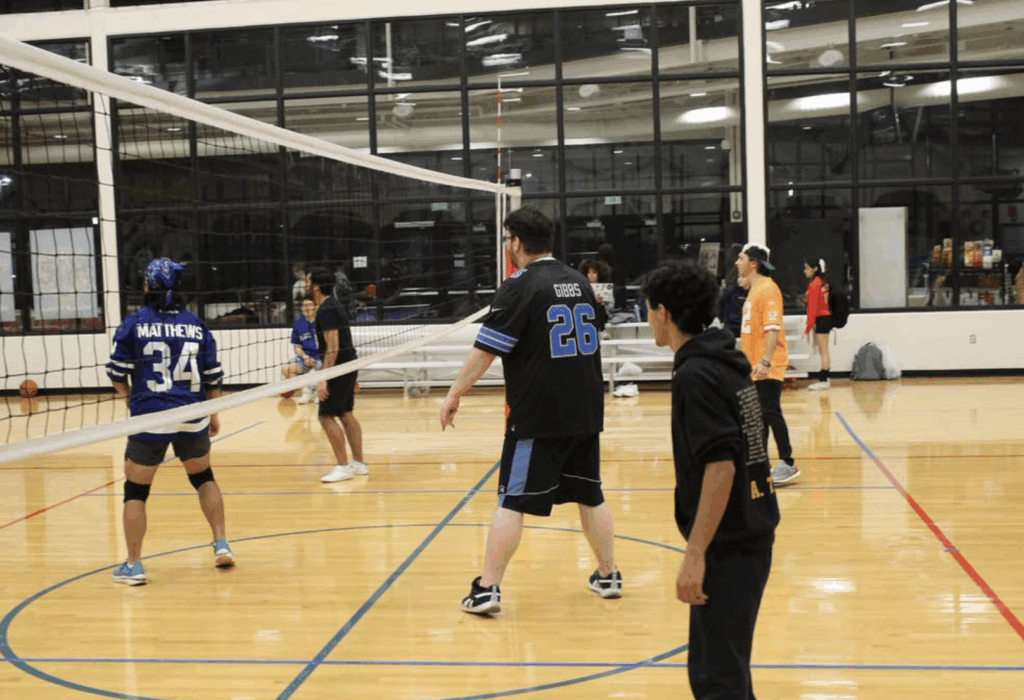
It’s mid-semester. Your planner is overflowing with exams, papers and late-night study sessions at the library. Between commuting, classes and everything in-between, that workout you promised yourself keeps slipping further and further down the to-do list.
For many students, exercise is the first thing to be neglected when schedules fill up. But staying active doesn’t have to mean spending hours in the gym. Research from Mayo Clinic shows that movement boosts energy and eases stress. With on campus resources, expert advice and strategies from fellow students, you can fit fitness into your schedule, no matter how busy it gets.
Why Movement Matters
According to the Centers for Disease Control and Prevention (CDC), adults need at least 150 minutes of moderately intense aerobic activity each week. This is only 30 minutes a day, five days a week. The CDC also notes that even small movements, like a 10-minute walk across campus, contribute to those totals.
Dr. Ahmed Radwan, the dean of the College of Health Professions, says that students often underestimate how much movement they actually get in a day.
“Many students find it difficult to maintain the CDC’s recommendations because of their busy schedules,” Radwan said. “But the flexibility of college life actually makes it easier to fit activity throughout the day.”
He encourages students to focus on consistency rather than intensity.
“Even breaking up activity into 10-minute intervals helps,” he said. “In ergonomics, we teach people the 2-8-2 rule: for every 20 minutes of sitting, stand for 8 minutes and move around for two.”
Even a little movement goes a long way toward keeping your mind and body ready for college life.
Campus Resources You’re Already Paying For
One of the easiest ways to stay active is to take advantage of what is already on campus. The Michael and Gail Whitty Student Fitness Center offers a variety of machines, strength training equipment and open gym space.
Aubrey Mery, who works at the front desk, notes that students come in at all hours.
“Students come in at all times of the day,” Mery said. “Evenings are usually the busiest with intramural practices or open events.”
In addition to open gym time, the Fitness Center offers yoga, Pilates, kickboxing and strength training sessions throughout the semester. Also offered are intramural programs like basketball, volleyball and soccer. This gives Titans a chance to break a sweat while also meeting new people.
“Some students come in for quick workout upstairs, while others stop to play ping pong,” Mery said. “Students are always in and out.”
How Students Make It Work
Sometimes the best advice comes from fellow students who are balancing the same demands. Students across campus find ways to fit movement into their days.
For Luke Sprague, a sophomore studying biology, the key is consistency. He balances academics with fitness by prioritizing the gym after classes.
“I go to the gym after my classes are over,” Sprague said. “This ensures a smooth day where I can focus on academics.”
Sprague added that he has played on the intramural soccer team, but he finds a steady gym routine more impactful.
“IM sports meet less frequently than the gym, so the gym helps me stay consistent,” he said.
For Nino Pizzo, a graduate student in biochemistry, flexibility is what keeps them on track.
“I like to create a schedule of my day and find a time to dedicate to working out, even if it’s something light,” Pizzo said. “Sometimes this means squeezing in a 15-minute run in the afternoon, or heading to the gym for a 30-minute strength session.”
For them, working out is essential.
“Going to the gym serves as ‘me-time,’” Pizzo said. “Running and going to the gym will always be something I can fall back on.”
Tips for Staying Active on a Busy Campus
If a long workout feels unrealistic, start small. Dr. Radwan suggests short, frequent breaks throughout the day.
“Students can be creative,” he said. “Walking or biking to class, taking the stairs or doing short bodyweight exercises in the dorm all count toward your total movement.”
Dr. Joe Muscolino from Learn Muscles suggests some ways students can move during busy weeks:
Integrate movement into your daily routine. Take the stairs, walk to class and stand at your desk during study sessions.
Schedule workouts like classes. You wouldn’t skip a class, so don’t skip out on your workout. Use your planner and your phone to set reminders for work out sessions.
Take advantage of campus facilities. The fitness center is designed to cater to busy schedules. With its flexible hours and assortment of activities, it’s fit for all students.
Make it social. A workout buddy keeps you accountable. Exercising with a friend makes the activity more enjoyable.
Try quick, high-intensity workouts. HIIT sessions, like bodyweight squats, jumping jacks, push-ups, planks or burpees, boost energy in just 15 to 20 minutes.
Summary
As the semester progresses, many students find it difficult to balance academics and exercise. Detroit Mercy offers plenty of ways to stay active, including the Fitness Center, intramural sports and other on-campus opportunities.
Dr. Radwan reminds students that even small, consistent movements matter. Whether it’s walking around campus, taking the stairs or stretching during study breaks, every bit of movement adds up.
“Exercise reduces stress and supports general wellness,” he said. “It’s totally worth it and I’m a true advocate for that to happen.”
